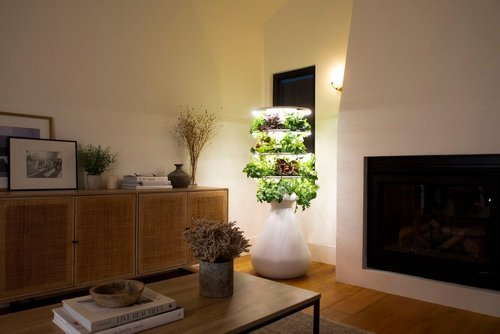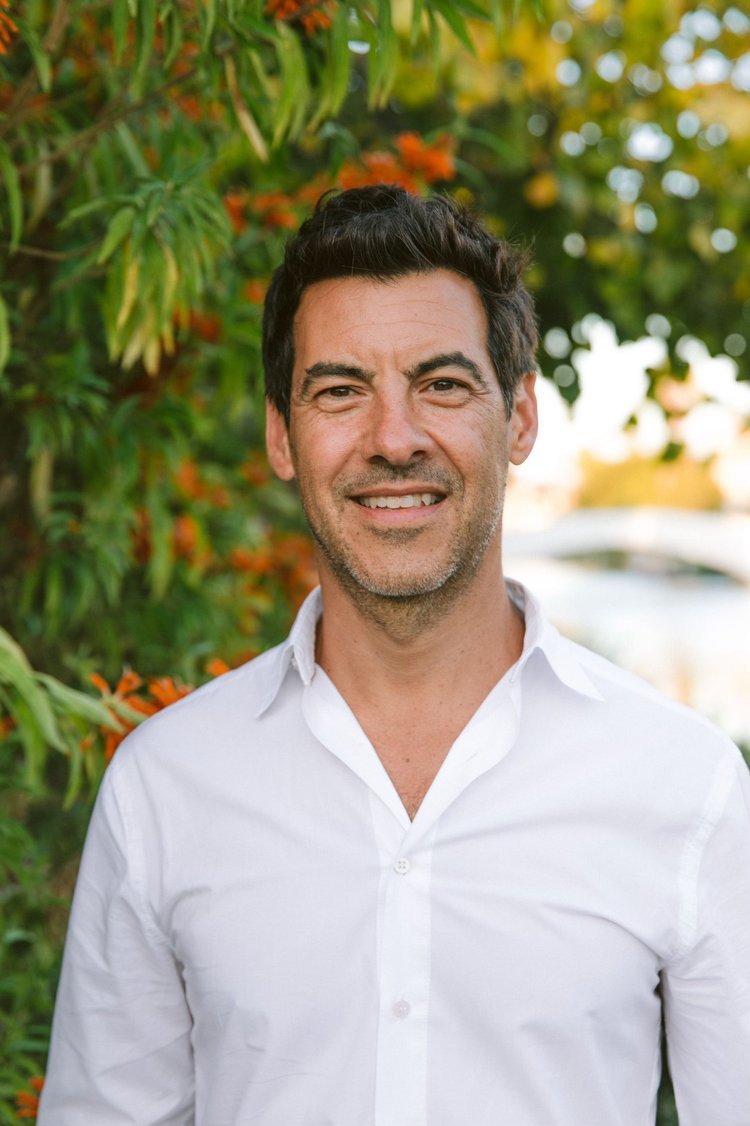How Lettuce Grow Is Empowering A New Generation Of Americans To Grow Fresh, Healthy Food At Home
As more and more Americans wake up to the idea that healthy food is a right, not a privilege, one of the areas which has seen the most innovation is helping people grow their own food at home.
One of the pioneers in the space has been Lettuce Grow, whose innovative ‘Farmstand’ is a modular hydroponic solution, which only requires five minutes of attention a week, yet produces an abundance of healthy produce. I caught up with Jacob Pechenik (who co-founded the company with actress Zooey Deschanel) to find out more about their journey.
“We have to repair the American food system. I realized this when I became a father and my focus turned to making sure my kids were nurtured with fresh, organic food. It was the first time I really noticed the high price and inaccessibility – I was shocked. This ultimately led me on a journey to start an organic farm with the intention of providing low-cost organic produce to the masses,” said Pechenik.
Through the experience of operating a farm, he learned that the biggest challenge wasn’t the growing method (conventional vs organic), but in getting the product from the farm to the people. Distribution was the biggest problem. Most “fresh” produce on grocery store shelves has been dead for ten days, it’s traveled thousands of miles, it’s likely sprayed with chemicals, and so much of the nutritional value is lost along the way. Roughly 50 percent is wasted on the long journey before it reaches a table. “So much resource spent, so much resource wasted. It’s a disservice to the environment, to the customers, and to the farmers,” he said.
Lettuce Grow was born from the idea that if we took the waste out of the system they could reduce the cost of fresh food to the customer by half, and reduce damage to the environment by much more when factoring in water and carbon emissions. The vision was nothing less than to rethink and redefine how humanity distributes perishable food. “We don’t want to harvest the product until it’s ready to eat, we want to ship living produce much shorter distances, we want to re-engage the consumer to take part in our food system. We want to make fresh, healthy food affordable and accessible to everyone,” explained Pechenik.
Jacob Pechenik, Co-founder of Lettuce Grow
The beauty of the system is that it works for a huge variety of products. Consumers can grow over 200 varieties: leafy greens (butter lettuce, romaine), veggies (tomatoes, eggplants, cucumbers, peas, beans), fruits (strawberry, watermelon), edible flowers, and herbs (mint, thyme, sage, basil). “If you can imagine it, you can grow it - pretty much anything that’s not a tree or bush,” laughed Pechenik.
Lettuce Grow customers fill out a survey with details including their family size, where they live, what they like to eat, then the company curates and suggests the varieties that will grow best for them. They ship seedlings directly to their homes and give guidance on how to place them in the Farmstand. The Farmstand is a modular self-watering, self-fertilizing system that allows everyone to grow 20% of their own fresh, nutritiously alive food with no pesticides and 95% less water than traditional agriculture.
“It makes it so easy (and beautiful) for everyone and anyone to grow their own food at home, either outside or inside,” said Pechenik. Beyond putting fresh, nutritious meals in people’s homes, Lettuce Grow is also educating and building an engaged community through their platform with harvesting tips, preparation ideas, and guidance on a healthy, more conscious and sustainable lifestyle. The take-up across the country has been remarkable. “We’ve just surpassed 2,500,000 plants grown and harvested by our community which is represented across the 50 states,” he said.
To be able to hear stories of how their work brings happiness into someone’s family and life is something that brings Pechenik and his team a lot of joy. And for many families with children, it's been a simple and stress-free experience to include a variety of vegetables and leafy greens into their kids meals. “I’ve experienced this transformation when I see my own kids pull a tomato off the Farmstand and want to eat it right away. Before the Farmstand they were hesitant to even eat a sliced tomato in a take-out meal. When we survey our growers, the number one aspect they cite by a longshot is the experience and the pride of growing their own food. The experience is profound,” shared Pechenik.
Pechenik shared his bigger vision for how he saw people changing our relationship with food. “My vision is to re-engage consumers with the natural world. We used to have a wealth of knowledge about food and nature that was passed down through generations and we’ve lost all this information. We’ve outsourced all the decisions around what goes in our food to others whose incentives are not necessarily aligned with ours. Now is the moment where we as consumers need to opt back into the decision process.”
Pechenik hopes that the experience of growing your own food is an accessible, tangible on-ramp of engaging consumers in the larger food system we are all a part of. “While we might only hope to grow 20% of our food, we will become empowered, much more engaged, and have more opinions about where the other 80% comes from,” he continued.
The team at Lettuce Grow hopes that this movement creates farmers out of ordinary citizens, so that they become stewards of the land and conscious consumers. In turn, they are empowered to be more active, to be involved, to ask questions and go out into the world and vote with their dollars and purchase more sustainable products. They hope that this movement will lead to a food system that is healthier for humanity and better for our planet.
Finally, I asked him what advice he had for other entrepreneurs wishing to create social impact. “Social impact requires change of the status quo. You have to change your mindset to really look at something for what it could be, without regard to the accepted industry rules, stakeholders and status quos. Think with a beginner’s mindset to look at things as an outsider who can question the most basic notions. There is a lot of work you need to do to get from point A to point Z to create the change you desire and completely change a system, but when it truly improves lives and the overall outlook it's worth the journey. Start before you are ready and don't give up!” he said.



